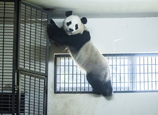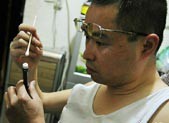
Better quality
"Seeds are more expensive than gold now. As seeds are mostly controlled by foreign companies, they can set the prices however they want. It is also really hard to tell whether seeds are genetically modified or not if they are not properly labeled. Developing our own seeds is a priority not only for price but for food safety," Wang said.
Research conducted by Chinese experts has showed that domestic companies are still weak compared with global corporations in the seed market.
8,700 companies had registered as seed companies by 2012 but no more than 80 of them have the ability to develop into a national enterprise to breed seeds. Not a single Chinese firm has cracked five percent of market share and the sales of the top 20 companies together are still dwarfed by Monsanto.
After Chinese authorities amended the regulation on seeds to raise the bar for entering the seed industry, the field decreased to 6,296 companies, the People's Daily reported.
Gene protection
But the expansion of cross-country enterprise in China is not so legitimate, Wan Jianmin, chief of crops study at the Chinese Academy of Agricultural Sciences, told the China Economic Weekly in 2011.
Wan told an story of how a global enterprise apparently found a soybean sample near a deserted factory in Shanghai and successfully obtained more than 100 patents in the US with one anti-virus gene found in the soybean.
The soybean, which originally hails from China, dominates the market in Brazil and Argentina. But if Chinese farmers want to grow this particular soybean, it would violate the company's patent and levies would apply, Wan said.
Worse than this, China has not patented or protected any kind of seed as intellectual property, according to State Intellectual Property Office (SIPO).
"Seeds themselves can't be patented but can be separately protected and recognized by the Ministry of Agriculture (MOA) and Ministry of Forestry. But if a certain gene was sampled or a technology was developed during the progress, then a person or company can apply for a patent on that," Sun Pingping, a press officer at SIPO, told the Global Times.
Sun said that a few Chinese companies or scientists have applied for patents related to seeds, but the total remains unclear.
"The genes of any plant are very valuable information and the MOA protects seeds as new species," Chen Hong, an expert of the office for the protection of New Varieties of Plants under MOA, told the Global Times.
A general manager of an organic grain farm in Lingbi county, Anhui Province, told the Global Times that the seeds they used were jointly developed by local universities. But these hybrid seeds have no patents because the technology used to breed them is already common practice.
Chen did in fact confirm that vegetable sales are mostly dominated by foreign companies but for staple grains including rice, Chinese varieties maintain a competitive edge in the market.


















 A hemophiliac and his 'treasures'
A hemophiliac and his 'treasures'


![]()
